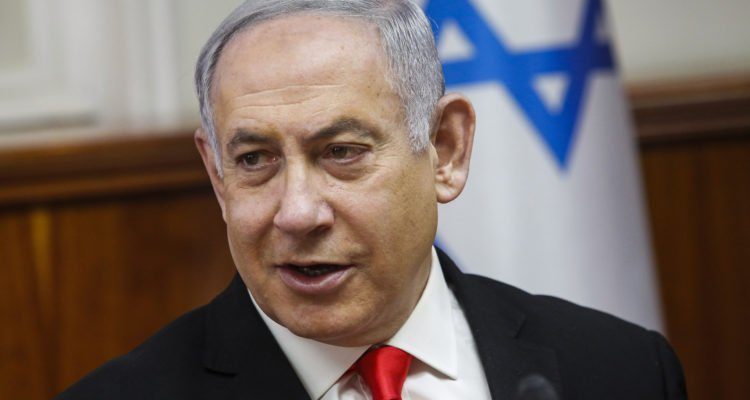Netanyahu spoke of the historic day and that peace will come to a strong, economically vibrant Israel.
By David Isaac, World Israel News
“This is a historic day, a joyous day for all citizens of Israel, a day of victory, the doctrine of peace for peace,” said Prime Minister Benjamin Netanyahu during a press conference on Monday evening.
Netanyahu spoke following the first commercial El Al flight to Abu Dhabi, which carried a U.S. and Israeli delegation on Monday to advance talks on normalization between Israel and the United Arab Emirates.
“I spoke today, a few minutes ago, with the members of our delegation in Abu Dhabi. On my instruction, the head of the delegation, Meir Ben-Shabbat, invited the United Arab Emirates (UAE) delegation to Israel. I can tell you that we will give them a red carpet welcome just like they welcomed us,” Netanyahu said.
“I saw the El Al plane land in Abu Dhabi, in daylight, and I saw our flags unfurled – I was moved and I felt enormous pride. I am certain that all of you, without exception, felt the same thing and certainly felt that this is a special day and the start of a new era in our history,” Netanyahu said.
The prime minister said the breakthrough was 25 years in the making.
“Twenty-five years ago I wrote in my book A Place under the Sun (Makom tachat Hashemesh) the following words: ‘It is possible to have a peace that does not entail dangerous concessions on Israel’s part. A peace that rests on constant Israeli deterrence, a peace based on our growing strength and power. If in the next generation the Arabs come to recognize that Israel dwells in safety in the Middle East and is destined to remain there forever, it is possible that there will be a psychological revolution in the stand of the Arab states regarding Israel’s right to exist.'”
Netanyahu has stressed that this agreement differs from past Israeli-Arab agreements in that it doesn’t require Israeli land concessions. He calls it “peace for peace.” However, Israel did hold off on extending sovereignty over parts of Judea and Samaria in order to make the deal, for which the prime minister has received criticism. Netanyahu had campaigned on the promise of extending sovereignty, an idea popular with his base.
The prime minister has argued in his defense that the U.S. had already asked him to put sovereignty on hold anyway, and to make such a move without U.S. support would have been a mistake, so he decided he might as well go ahead with the UAE-Israel deal.
Netanyahu stressed the importance of his work in freeing up Israel’s economy, which he said was a prerequisite for a peace deal with the Arabs as they would be attracted to a strong, vibrant Israel.
“We needed to turn Israel into a very strong country. The first thing we needed to change was its cartelized, socialist, bureaucratic economy to as free an economy as possible,” he said. “Therefore, when I was elected a year after I wrote those words, I stood before the U.S. Congress in my first speech there, and I said that we needed to halt the U.S. economic assistance to Israel, that we have matured, that we would turn Israel into a free market economy that could hold its own with the economies of the world. This is exactly what we did.”
He forecast more Arab countries will make deals with Israel in the future.
“A State of Israel that has eight or ten million Jews living in it in a few decades will be able to enjoy prosperity, momentum and independence. Precisely because the Jewish state will be so strengthened, most of the Arab world will, in the end, be obliged to make a true peace with it,” he said.
“This outlook absolutely contravenes the widespread concept which holds that Israel will only secure peace if it appeases the Arabs with far-reaching concessions that will weaken it and shrink it. On the contrary, a lasting peace will only be achieved if the Jewish people convince the Arabs it must live with them and alongside them, that here it is and here it will remain,” Netanyahu said.





